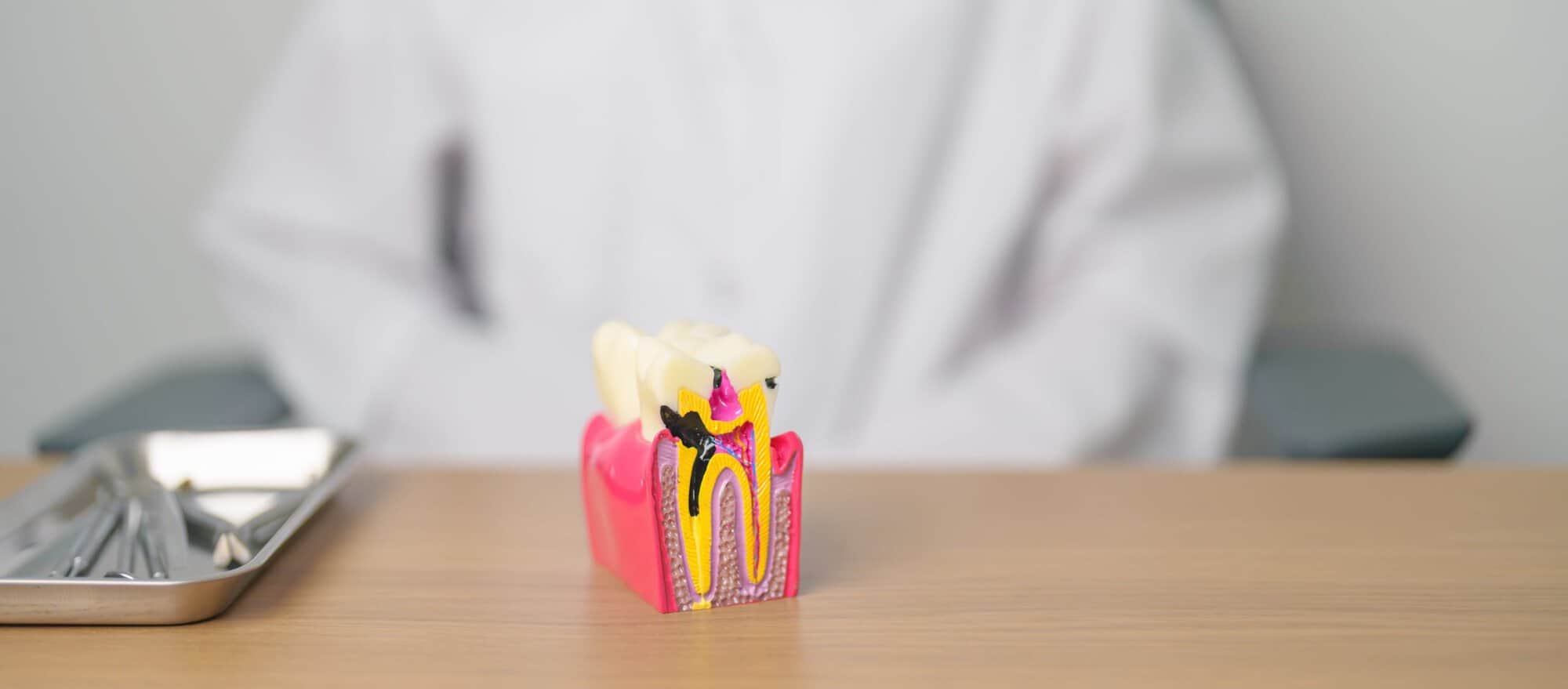
Identifying Signs Of Root Canal Infection
A root canal repairs the inner part of the tooth, repairing any damages caused to the tooth. Teeth are made up of layers: the hard external enamel, the inner porous layer called dentin, and the innermost part of your tooth made up of soft tissue called pulp.
A root canal is also known as an endodontic treatment, where a hole is drilled through the layers of the tooth, and the dental pulp is removed. The gap left behind is filled and sealed and occasionally needs a crown over the top of the tooth for additional protection. Root canals can save your teeth to avoid complete removal or implants and are a common procedure many endodontists complete daily. Complications after a root canal are rare, but if you experience any pain, warmth, or pus after a root canal, you should schedule a follow-up appointment with your dentist.
Root Canal Infections
Root canals are rare to become infected, and they are usually safe and common procedures. Root canal infections happen when bacteria get into the inner part of the tooth, caused by untreated dental decay or trauma. It is important to pay attention to any warning signs before bacteria spreads to the interior layers of the tooth and causes further damage.
Feeling minor pain or inflammation after a root canal is normal, as the nerves around the tooth are swollen or inflamed. Nearby gum tissue can be damaged during the procedure, so there may be discomfort, especially during chewing or eating. The pain should be minimal and over-the-counter medications can help with the discomfort, but any severe pain 1-2 weeks after treatment can mean infection.
Causes of Root Canal Infection
After an incorrectly done root canal procedure, you can show signs immediately or start having pain 1-2 weeks after treatment. The point of a root canal is to remove the bacteria that has caused the infection in your tooth, but without all the bacteria extracted, your tooth can become reinfected after the procedure is finished.
There are a few causes for a root canal infection:
- Any previous tooth pain or issues that allow bacteria to linger
- Cracked tooth roots unable to be treated by a root canal
- Any delays in crown placement or restoration
- Improperly cleaned or disinfected tooth canals
- Inadequate seal or oversized filling
- Root canals having a difficult, narrow, or curved shape
It is important to make an appointment with your dentist if you notice anything out of the ordinary. If left untreated, the infection can spread to other teeth and parts of your mouth, like your gums and cheeks. It can even spread to your jaw, face, and bloodstream in extreme cases. Quickly addressing any signs of a root canal infection can help you avoid damage to your tooth and also your overall health.
Signs of Root Canal Infection
Tooth Pain
Pain after a root canal is normal. Discomfort and tenderness usually last for days following the treatment, and you may feel pain up to a week later. If intense pain lingers after a week, feels painful when eating, or if it feels even worse than before the procedure, you should see your dentist. Sometimes, a delayed tooth infection will happen and feels fine for some time after, but a tooth not healed fully after a root canal can cause pain months, or even years, after the procedure. Inflamed gums will swell and cause discomfort near the affected tooth.
Abscess on Gums Near Tooth
Abscesses happen when bacterial and dying pulp material builds up under the gums. They may be filled with pus or fluid and are not always painful. An abscess looks like a red bump or pimple on the gum line. During the root canal procedure, the periodontist drains the abscess and cleans out the bacteria.
Discoloration
When the inner layer of the tooth is infected, the tooth can start turning brown or yellow. This means the infection has reached the inner pulp, which turns dark brown and affects the tooth’s color. The pulp tissue starts to die because the tissue inside was not cleaned properly.
Bad Breath
Bad breath can be harder to pinpoint as an oral infection. If you notice you still have bad breath after brushing, flossing, and using dental washes, it is likely because of a failed root canal. In addition to the smell, you can also experience a bitter taste in your mouth caused by the infected tissue.
Visit Carrie Muzny D.D.S. For A Healthy Smile
If you experience any symptoms of an infected root canal, you’ll want to get treatment as soon as possible. Dentists will carry out retreatment for the reinfected tooth, which is similar to the original root canal process. You don’t want to prolong retreatment if you are seeing any signs of a failed root canal, as the complications can be disastrous. When the infection spreads, it can cause bone loss, affect your chewing, and even change your face’s appearance. Significant bone loss is irreparable and implants are no longer a viable option.
If you are concerned about an infected root canal, visit Carrie Muzny D.D.S.. We offer virtual consultations and in-person appointments at our office in The Woodlands. We help clients from Benders Landing, Woodforest, Spring, and North Houston to the Conroe/Montgomery area. Take care of your teeth for the sake of your smile and your health. Contact us today to schedule an online consultation or visit our office.

